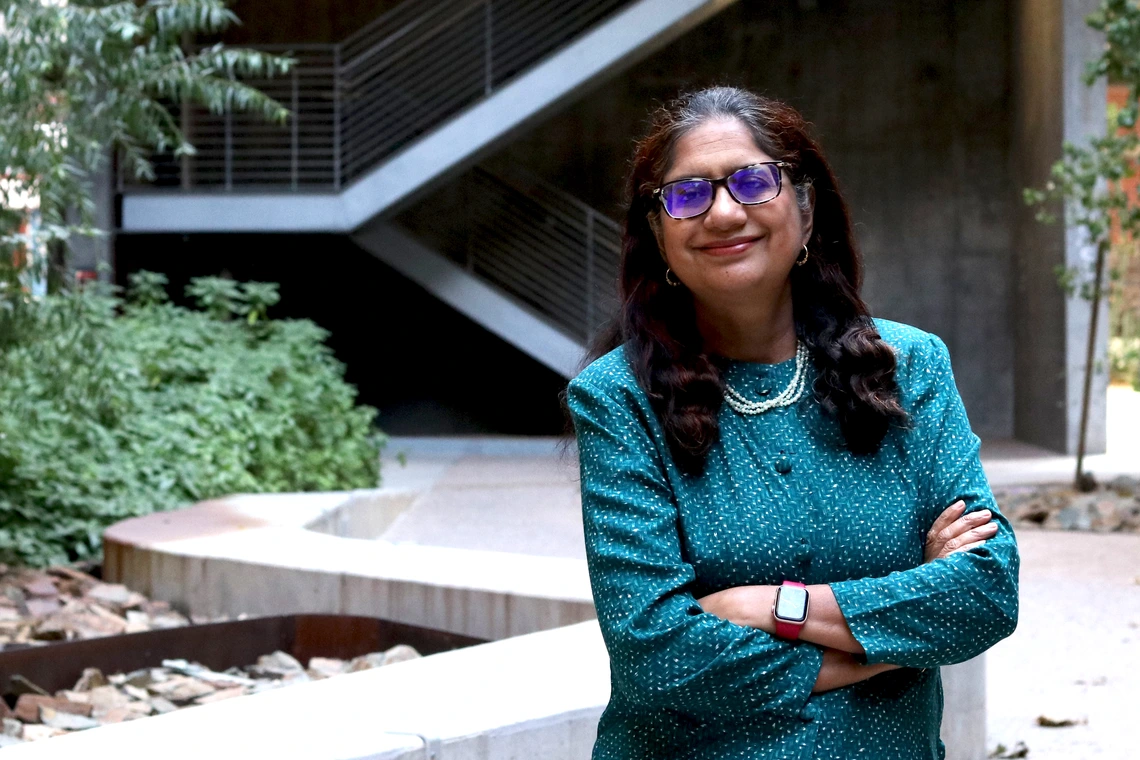A green approach to food safety

Sana Ivanovich
Sadhana Ravishankar grew up in India, where she first developed a love for botany and microbiology. She enjoyed working with farmers and became interested in agricultural production. Now, she’s an approved food processing authority with the Association of Food and Drug Officials and runs a scientific lab at the University of Arizona with an emphasis on food safety, including researching methods to prevent foodborne illness outbreaks.
Have you ever wondered how bacteria make it into our food? Don’t ask a microbiologist where germs are hiding, you won’t look at the world the same way.
“It depends on the surface of the produce. Anything with smooth surfaces like tomatoes or peppers will be more difficult for bacteria to attach,” said Sadhana Ravishankar, a professor in the School of Animal and Comparative Biomedical Sciences and chair of the University of Arizona Food Safety Consortium and the Applied Biosciences Graduate Interdisciplinary Program. “Any produce with a rough surface or cracks in it, will be much easier for bacteria to attach to.”
She said that bacteria can contaminate produce during any part of its journey to the supermarket, including in the field, at harvesting, packaging, shipping, and even within the store.
Ravishankar wears many hats but is particularly proud to be an entrepreneur. As an inventor and co-founder of the startup business PhytoCentric Solutions LLC, Ravishankar and her colleagues brought food safety research out of the lab and into the market place — developing a plant-based antimicrobial wash that uses green technology to clean produce, disinfect surfaces, and can be used as a sanitizer.
The team’s goal was to use a plant-based solution to ensure food is safe to consume and has a longer shelf-life. The result is a clean label technology that is energy efficient and environmentally friendly, due to its biodegradable compounds, according to Ravishankar.
“The plant-based wash is completely safe to be consumed and can add flavors to foods, reduce blood sugar, cholesterol, and has antioxidant activity,” Ravishankar said.
What she loves most is being able to give back to society and provide the public with safer and healthier alternatives to keep our food safe. As for advice for students looking to get their foot in the door in food safety and microbiology, Ravishankar recommends joining a research lab.
“Being passionate about the subject you wish to pursue is step one,” she said. “From there, you attract those with similar interests and connect with people who can guide you.”

